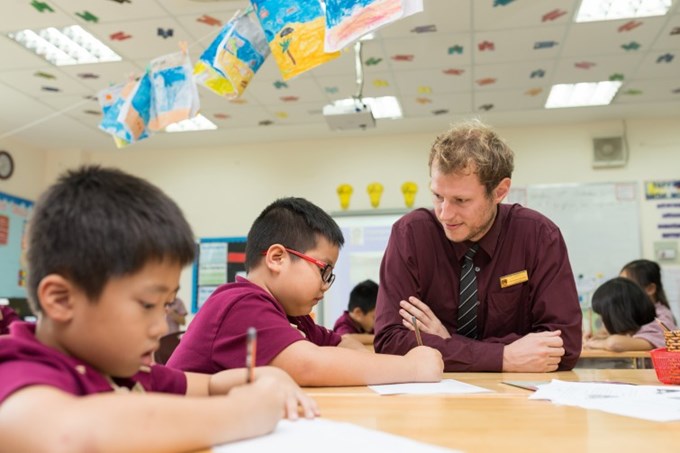Bilingual Children FAQs Is it an advantage to speak more than one language? Yes. Bilingualism helps children’s learning because they can think about their ideas in both languages. They can communicate with more people in their community and internationally and understand different cultures. They stay connected to their family, so they feel secure in their identity and have more self-confidence.

Is it an advantage to speak more than one language?
Yes. Bilingualism helps children’s learning because they can think about their ideas in both languages. They can communicate with more people in their community and internationally and understand different cultures. They stay connected to their family, so they feel secure in their identity and have more self-confidence. This helps them do well at school. They can learn other languages more easily and have more job opportunities in the future.
Is it true that all bilingual children start to speak later than monolingual children?
There is no evidence that bilingual children learn to speak later. Some children, whether bilingual or monolingual, learn to speak later than others.
Should parents speak their mother tongue at home?
Yes. If children know their first language well, it will help them learn English. When they understand an idea in their first language (such as numbers or colours), they easily pick up the English word that means the same thing. They also know how to use grammar and vocabulary in their first language, so they can quickly work out what is similar or different about the English language.
Isn’t it better for parents to speak English instead?
No. It’s very important that parents use the language they know best and feel most comfortable in. This is how they can help children develop language, talk about ideas and learn about the world. A child benefits from learning a language from their parents if the parents are confident in that language. A child who develops good use of mother tongue is more likely to develop good English. But if parents use English instead, children will lose their mother tongue. Neither language will progress, and the child can have problems in both languages. Parents often find their children refuse to speak their first language at home and insist on speaking English. What should they do about this? Children quickly find out that English is the most powerful language in our society and they often pick up the message that other languages are less valuable. Schools, children’s centres and family learning tutors can help by emphasising the importance of mother tongue. Explain to parents that they need to keep speaking their first language, even if their child answers in English. Children will understand what has been said and continue learning the language. Parents can also tell stories and sing songs with their children, borrow books in their language from the library, and watch TV programmes or videos and talk about them together. They can take their children to community language classes and social events so they meet others who speak their language. Visiting family back home gives children a strong motivation to communicate with cousins and grandparents. Although it may be hard work to keep up the first language, children will thank their parents when they are older and they understand the advantages of being bilingual.
Some parents say they are not teaching their child their family’s language, because they want them to learn English first.
Many parents say this. It is important to remember that the younger a child is the easier it is to learn a language. Also many children feel left out in their families when everyone around them is speaking a language they cannot understand. Children in this situation also miss out on all the advantages of bilingualism and can develop serious identity problems as they grow up.
Some children tell their parents not to speak their language to them in the school playground or in public.
Children who are not encouraged from very young to feel very proud of their language and culture can feel like this. Also children who are teased at school may feel embarrassed. The school should be encouraged to see bilingualism as an extra skill which the child has. He should be praised publicly for using it. Some children respond very well to being told of the advantages of being bilingual. Attending classes at a community language school can also help children to feel much more positive about their bilingualism.
What about children who have speech problems and are seeing a speech therapist? Should the parents stop speaking their first language at home and speak only English (even if their English is not very good)?
There is no evidence that bilingualism will make it harder for children with speech problems to develop speech. If the family stops speaking their language to a child who already has a speech problem there is a possibility that the child will become even more isolated and unable to speak. If communication in the family is difficult in English, this can only add to the problems. A child with a speech problem needs to be surrounded by people who feel confident in their use of language so that he has positive role models. Some researchers in this field even think that bilingualism can be very positive for these children.
If a child is growing up with two languages (for example, Vietnamese and English) and she sometimes uses English words when speaking Cantonese or vice versa, is she confused?
Children will use words that they know rather than not say anything at all. For instance, if a child knows the word for ‘ice cream’ in one language and not the other she will use the word in the language she knows rather than not ask for ice cream at all. The child is not confused; she is simply making use of all the language she/he has.





.jpg?h=2546&iar=0&w=3819&rev=c8cd0c95ea954151a3159279df83b149&hash=EC4DC4E63C4E4AC325805F6AEA543965)
.jpg?h=1365&iar=0&w=2048&rev=d00ea7b7ce29466cb2184e7ba25965f6&hash=BDBCC0C5678610F33676FED61D1F7124)
